| |
|
|
| |

|
|
|
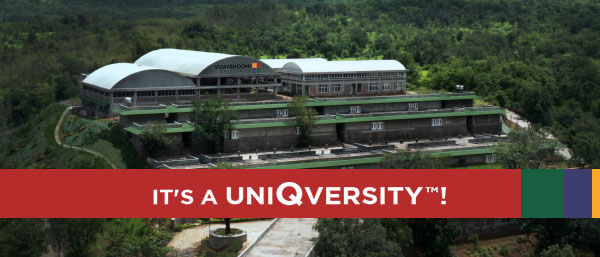

|
| |
|
|
| |
Discovery of the Week |
|
| |
|
|
| |
Dr. Narendra Jadhav: Architect of Educational Transformation
Rudransh Thakur, B.sc Sound Engr., TSM
Dr. Narendra Jadhav, an eminent figure in Indian academia and policymaking, has made an enduring impact on education, social justice, and economic policy. With an illustrious career spanning over thirty years at the Reserve Bank of India, he seamlessly transitioned to academia, where he led the University of Pune to international acclaim. His visionary leadership resulted in a substantial increase in foreign student enrollment, elevating UoP to a global educational hub.
|
|
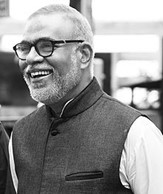
Dr. Narendra Jadhav
|
|
|
|
|
| |
In his role as a member of the Planning Commission, Dr. Jadhav played a pivotal part in shaping the 12th Five Year Plan, with a keen focus on education and skill development. His contributions extended to the formulation of initiatives like the Rashtriya Uchchatar Shiksha Abhiyan, emphasizing the importance of education and social justice. Driven by a profound commitment to inclusivity, he championed programs supporting socio-religious communities, showcasing his dedication to a more equitable society.
Beyond his distinguished career, Dr. Jadhav's extensive writings, comprising 41 books in English, Marathi, and Hindi, underscore his dedication to advocating for social causes. His literary work, particularly on Babasaheb Ambedkar and a trilogy on Rabindranath Tagore, serves as a testament to his multifaceted contributions. Dr. Narendra Jadhav emerges not only as a seasoned policymaker and educator but also as a compassionate advocate for positive social change, leaving an indelible legacy.
|
|
| |
|
|
| |
Education News |
|
| |
|
|
| |
UGC Discontinues MPhil Degree; Cautions Students Against Taking Admission
Jagranjosh, December 27, 2023
The University Grants Commission (UGC) has officially discontinued the MPhil degree and is advising students against enrolling in this program, as it is no longer recognized. The decision, based on Regulation No. 14 of the UGC (Minimum Standards and Procedures for Award of Ph.D. Degree) Regulations 2022, explicitly prohibits Higher Educational Institutions from offering the MPhil program. The UGC has issued a notification instructing universities to cease offering the MPhil program in accordance with the new regulations.

Education Spending to Hit $10 Trillion by 2030, India to Surpass China as Top Source of Int’l Enrollments
Erudera, December 29, 2023
The expected increase in global education spending points to a significant rise, projecting that the number of students studying abroad will nearly reach 9 million by 2030. Notably, it is anticipated that India will overtake China as the leading source country for international students. The United States remains the top destination, closely followed by the United Kingdom, Australia, and Canada. Projections suggest that global education and training expenditure will hit $10 trillion by 2030, highlighting the growing importance of the international education sector. Moreover, in recent years, China has become a sought-after destination for international students.
|
|
|
|
| |
|
|
|
| |
Faculty Fundas |
|
|
| |
|
|
|
| |
A Harmonious Journey: Exploring Hindustani Classical Music
Khushi Chowhan, B.Mus Production and Performance, TSM
Can you share a bit about your journey and background? What sparked your interest in Hindustani classical music, and how did you begin your training?
I am Learning Hindustani Classical vocal music from more than 10 years, and have had teaching and performing experience of more than 6 years. I sing pure classical as well as semi classical vocal music.
|
|
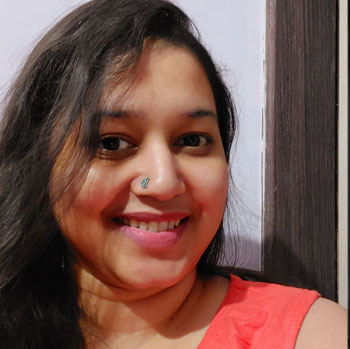
Prof. Pranjali Tare
Faculty, Indian Contemporary Vocals
True School of Music, Vijaybhoomi University
|
|
|
|
| |
My first teacher and guru & critique is my father Shripad Tare who was a regular vocalist for Nagpur AIR. My journey into Hindustani classical music began at an early age. I had always been passionate about singing, and I started performing at a young age in Nagpur with a local organization that promoted young talent. This continued alongside my education, which I was pursuing in the science stream.
I must admit that initially, I didn't consider pursuing music professionally, as it wasn't perceived as a mainstream career in my hometown. I even pursued a Master's degree in microbiology. However, the turning point came when one of my gurus encouraged me to choose music over science. It was a moment of clarity where I realised that music was my true calling, and I couldn't live without it. So, I completed my Master's in Microbiology and embarked on a dedicated journey into Hindustani classical music by pursuing a postgraduate program in Hindustani vocals at Lalit Kala Kendra, Pune University.
Can you elaborate on the core principles and elements of Hindustani classical music? What defines this genre, and how does a vocalist approach ragas and tals?
Hindustani classical music is built upon two fundamental pillars: "raga" and "tal." These are at the heart of this music. Ragas are melodic frameworks or scales that evoke specific emotions and moods. They are the backbone of Hindustani music and provide a foundation for improvisation. When performing a raga, vocalists like myself engage in improvisation, which is a core aspect of Hindustani classical music. This improvisation adds depth and uniqueness to each rendition. Alongside ragas, we have "tal," which refers to rhythm. Rhythm and melody are intertwined, and they complement each other to create the complete tapestry of Hindustani music.
Our music has a rich history dating back to ancient texts like the Samved. Over time, it evolved into various forms, such as dhrupad, dhamar, khayal, and tarana. These forms have contributed to the structure and diversity of Hindustani classical music, making it a unique and intricate art form.
How does Hindustani classical music distinguish itself from other music genres?
The significant element of Hindustani Music expression is the Fine Tone of the instrument (including melodic & percussion instruments and the voice), and the ‘Swar Lagaw’ which forms the core of the expression of the music along with the Raag melody. One of the key elements that differentiates Hindustani classical music is the concept of "raga." Ragas are not found in most other music genres worldwide, except for Carnatic music, which also relies on ragas.
The genre also stands out due to its historical evolution, going from dhrupad to khayal, thumri, dadra, and more. Each form adds layers and dimensions to the music, making it a diverse and rich tradition. Moreover, the depth and complexity of Hindustani classical music set it apart. It requires a profound connection between the artist and the audience, inviting listeners to embark on an inward journey. This focus on introspection and emotional expression distinguishes it from many other musical styles.
What do you see as the challenges this genre faces today, especially considering changing audience preferences?
Hindustani classical music faces several challenges in today's world. Firstly, it requires a receptive audience willing to delve into their inner selves while experiencing the music. This introspective aspect can deter some listeners who seek more immediately gratifying music.
Another challenge is the need for individuals to take pride in their cultural roots and the music of their own land. This sense of pride and understanding is sometimes lacking, and many people are more drawn to contemporary or commercial music.
To ensure the future of this tradition, we must bridge the gap between Hindustani classical music and contemporary music. The genre should remain relevant while preserving its authenticity. This requires both artists and audiences to embrace the music's depth and intricacy.
Could you share your advice for aspiring musicians interested in pursuing a career in Hindustani classical music?
My advice to aspiring musicians is twofold. First and foremost, find a dedicated and authentic guru who can provide you with proper training. The foundation of any successful career in Hindustani classical music is rigorous and sincere learning. Secondly, while preserving the core principles of the genre, stay open to contemporary influences. This adaptability will help you reach a broader audience and ensure the continued relevance of Hindustani classical music in today's world. It's vital to strike a balance between tradition and innovation.
|
|
|
|
|
|
| |
|
|
|
| |
Week Gone By |
|
|
| |
|
|
|
| |
A Melodious Extravaganza at Vijaybhoomi University
Jyoti Shinde, BBA, JAGSoM
I am thrilled to share with you the resounding success of the recent musical ensemble held at our esteemed university. The event showcased a diverse range of Hindi vocals, captivating the audience with a delightful blend of Bollywood tadka and classical surus.
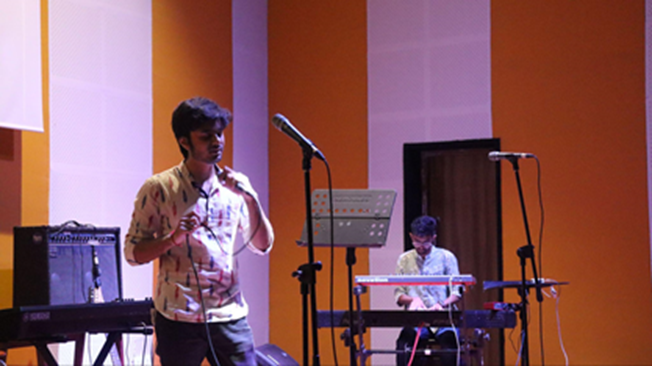
The atmosphere was electric as talented performers took the stage, delivering soul-stirring melodies that left everyone spellbound. From foot-tapping Bollywood numbers that had us swaying in our seats to the intricate and serene renditions of classical compositions, the ensemble truly had something for every music enthusiast.
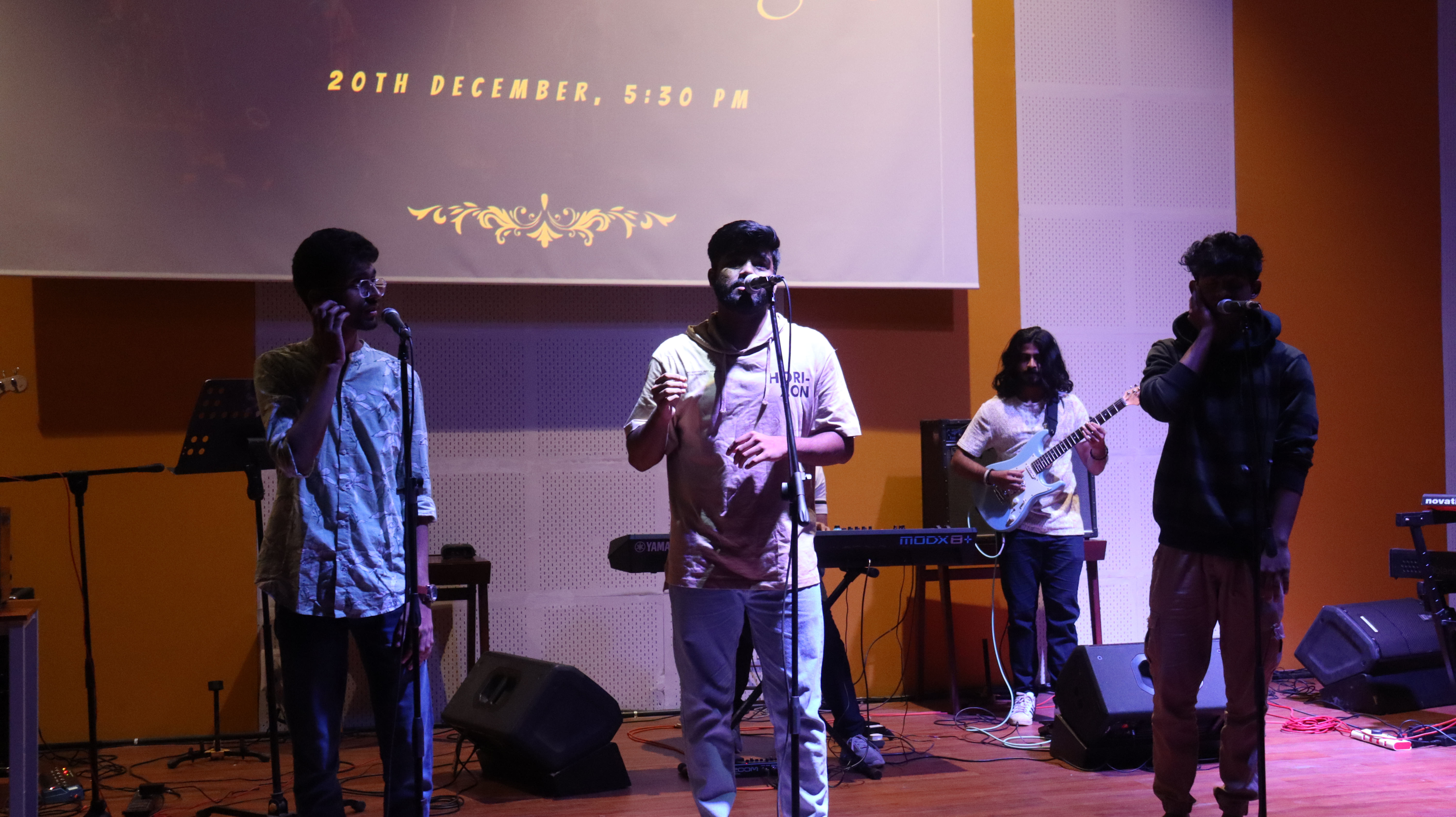
The event highlighted the immense talent and passion present within our Vijaybhoomi University community. Our students, with their exceptional vocal skills and dedication, demonstrated a remarkable ability to captivate and engage the audience.
.JPG)
We extend our heartfelt appreciation to all the performers, organisers, and supporting staff who made this musical extravaganza a grand success. Their hard work and commitment have once again showcased the vibrant spirit of our university.
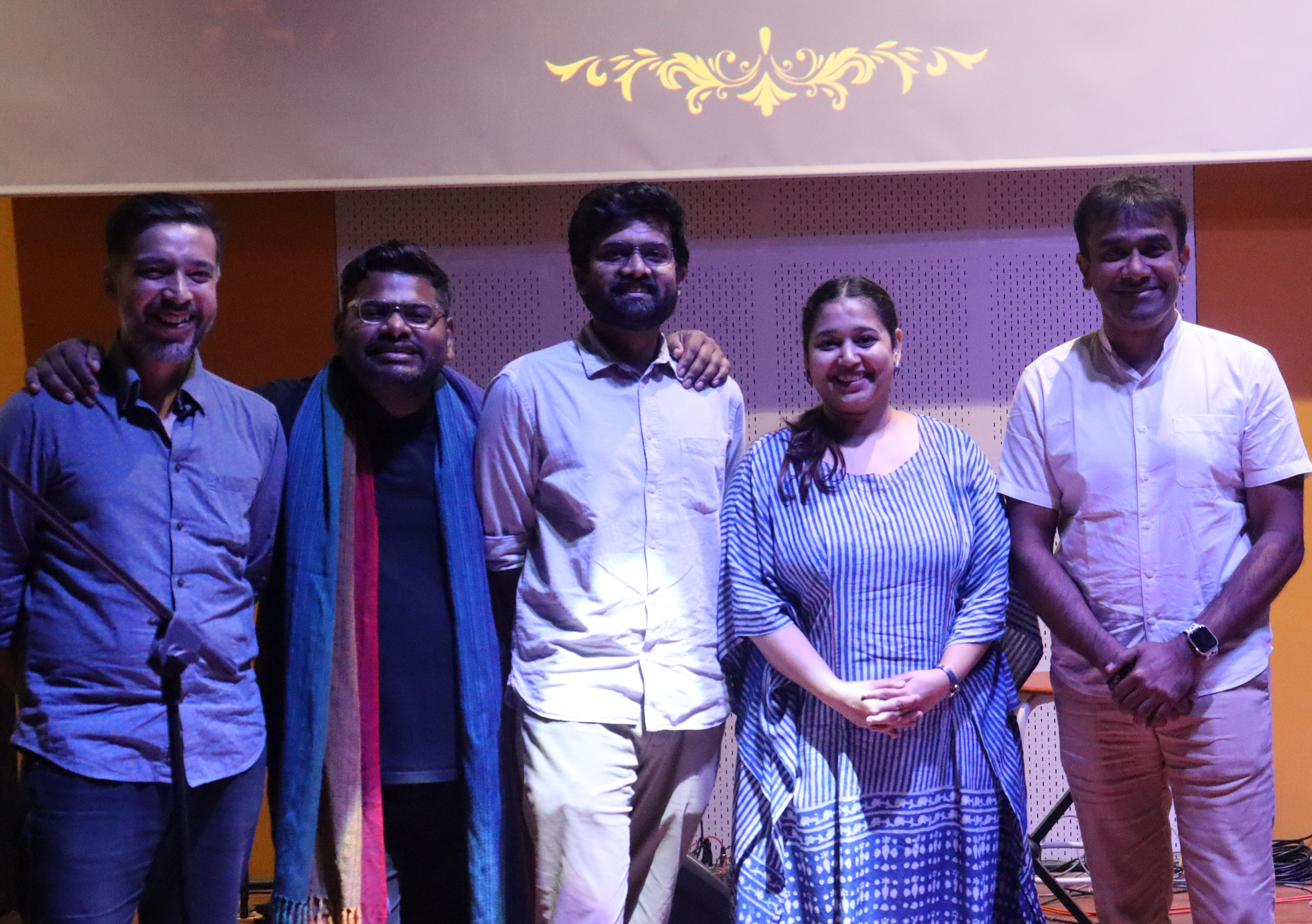
As we welcome another year, let us carry the echoes of this enchanting musical experience in our hearts. May it inspire us to embrace the power of music and foster creativity and unity within our community.
Wishing you all a harmonious and prosperous year ahead!
|
|
|
| |
|
|
|
| |
Student Quotes |
|
|
| |
|
|
|
| |
|
“The True School of Music students always fascinate me with their talent and determination. The ensemble was an amazing event which I really enjoyed."
Mustafa Shaikh, B.Tech
Vijaybhoomi University
|
|
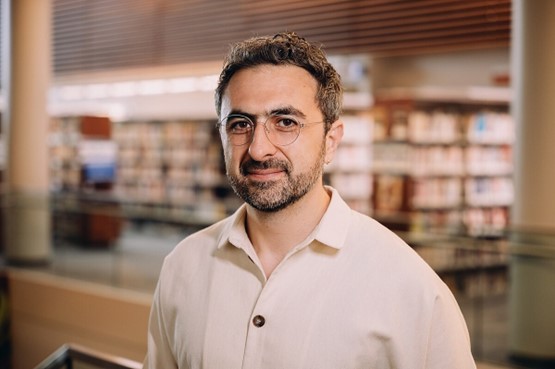
|
|
|
|
| |
|
|
|
| |
Life@VU |
|
|
| |
|
|
|
| |
Vijaybhoomi University: A Hub of Musical Energy
Saniya Dalal, BBA, JAGSoM
In an exhilarating showcase of musical prowess, the stage at Vijaybhoomi University came alive with a myriad of bands, each contributing to the vibrant tapestry of the evening. Among these musical bands were Moises and several other talented groups, their names resonating in the auditorium as a prelude to the diverse soundscape that awaited the eager audience.
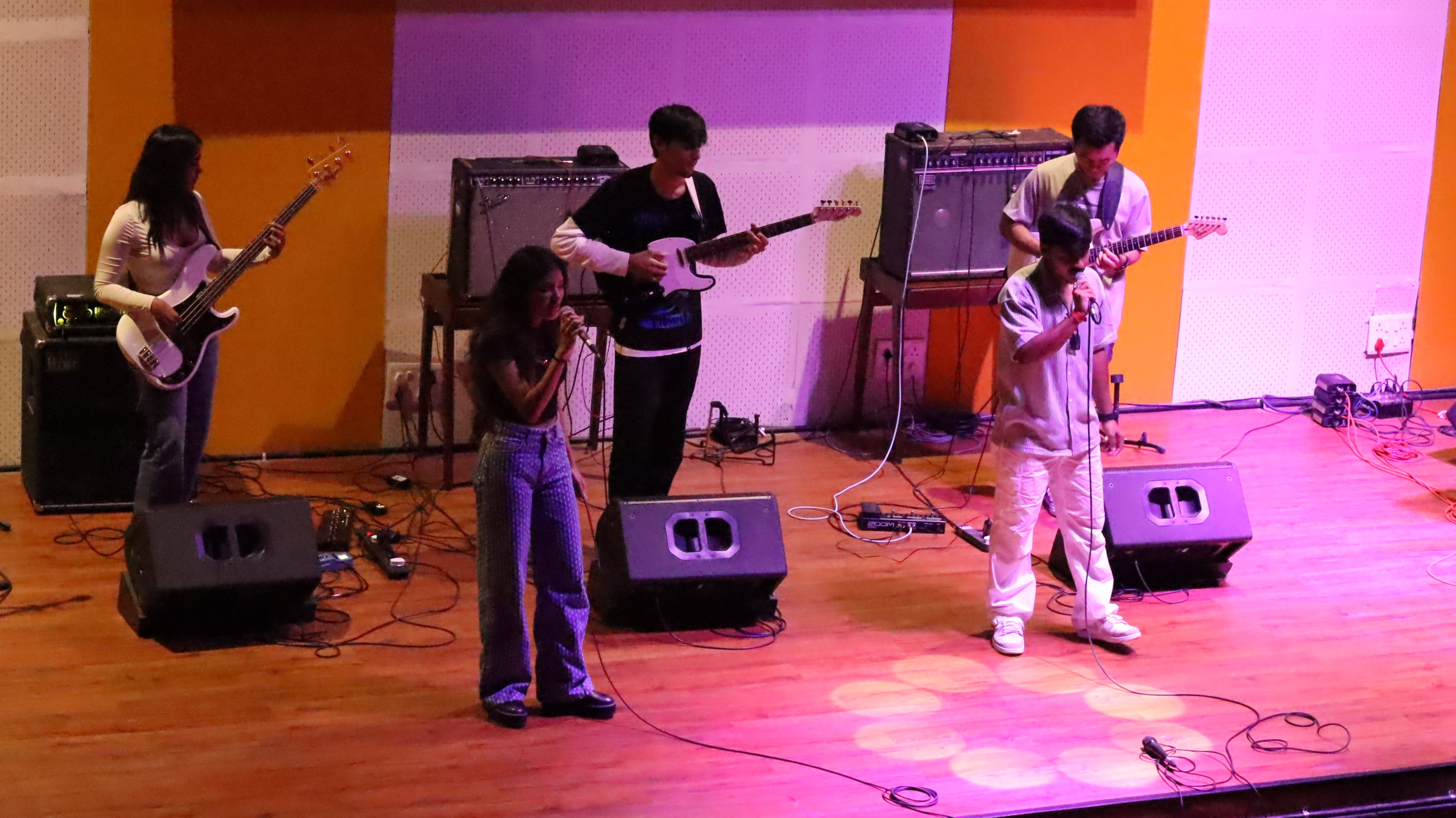
In the rich mosaic of musical acts, Chromance, with Neil Singh on piano, Adarsh Sinha on electric guitar, and Jay Rana on electric guitar, distinguished themselves with a standout performance, captivating the crowd and proving to be a harmonious force to be reckoned with.
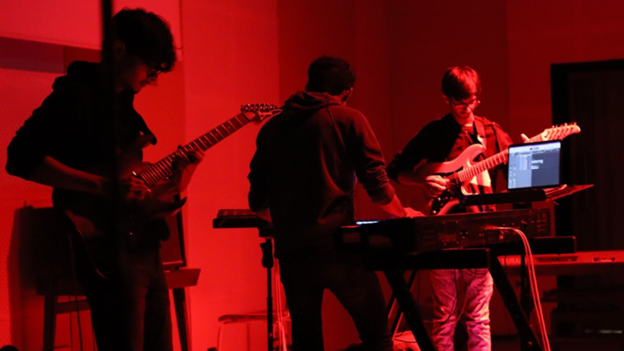
Chromance embarked on a musical odyssey with a clear mission - to craft original compositions from the ground up. The result was a spellbinding event filled with soulful melodies, innovative compositions, and an electrifying atmosphere. The trio's commitment to authenticity shone through as they not only performed live but also produced backing tracks for each song, adding an immersive layer to the overall experience.
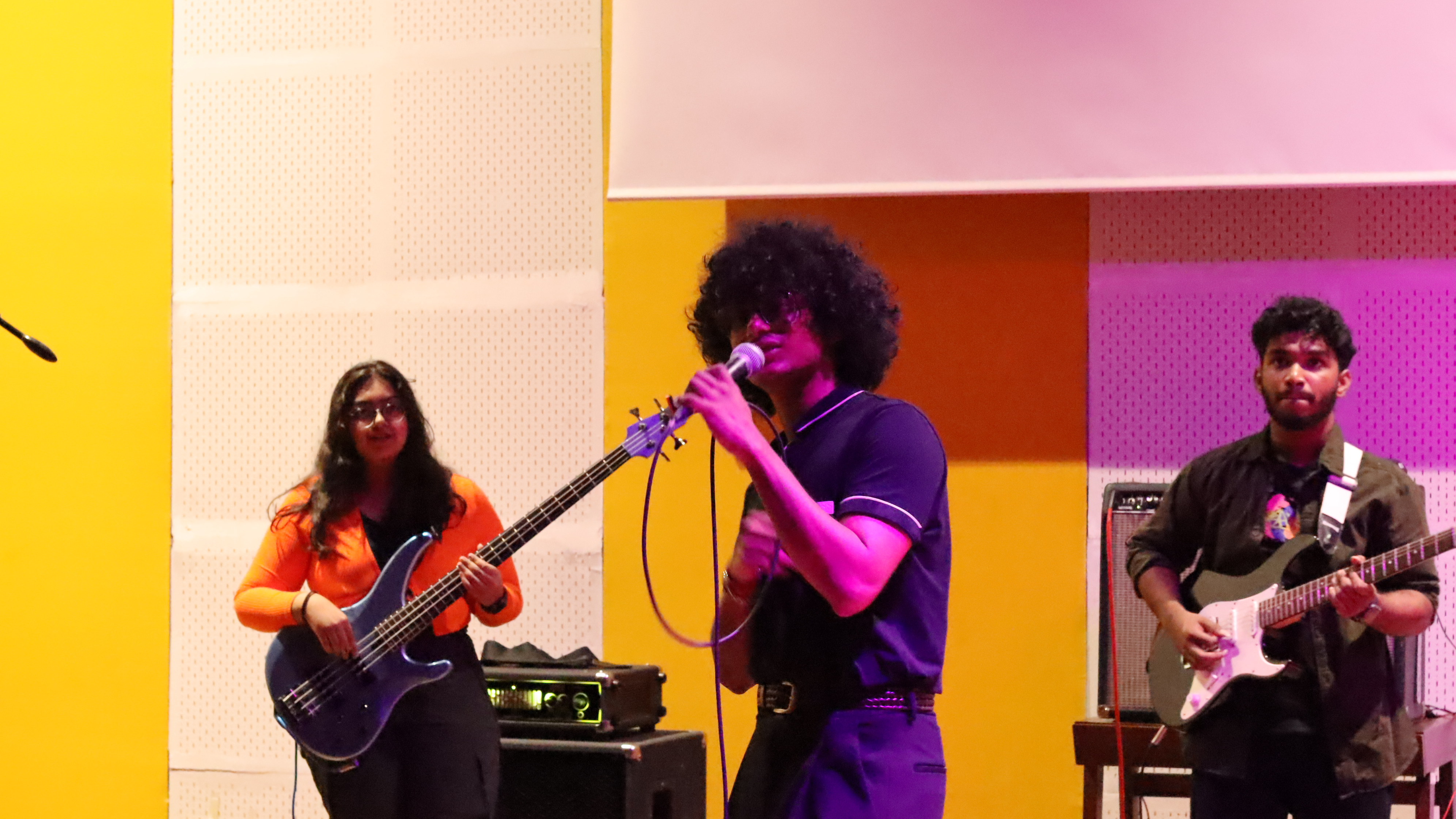
Kicking off the evening was the infectious energy of "Susgaysir," a clever spoof paying homage to the band Sungayzer, which served as a key source of inspiration. The backing track was a collaborative effort led by Pratham Barapatre and with a creative touch from Neil Singh.
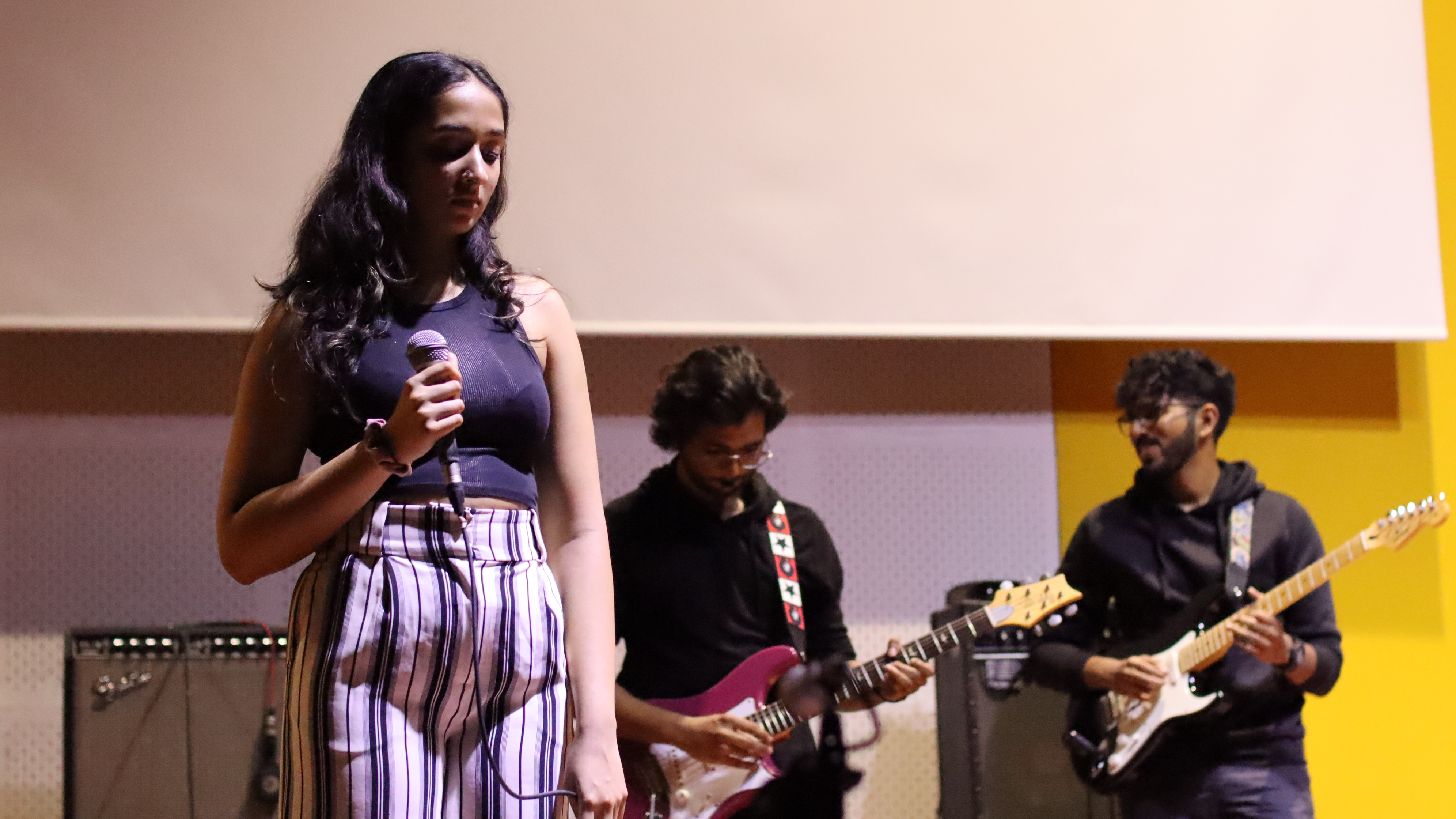
The journey continued with the pulsating beats of "Junglee Etude." Named for its Jungle music influences and featuring Drum and Bass elements, the composition seamlessly blended musical styles. The inclusion of a section that mimicked a musical exercise added an extra layer of ingenuity, earning the song its distinctive name.
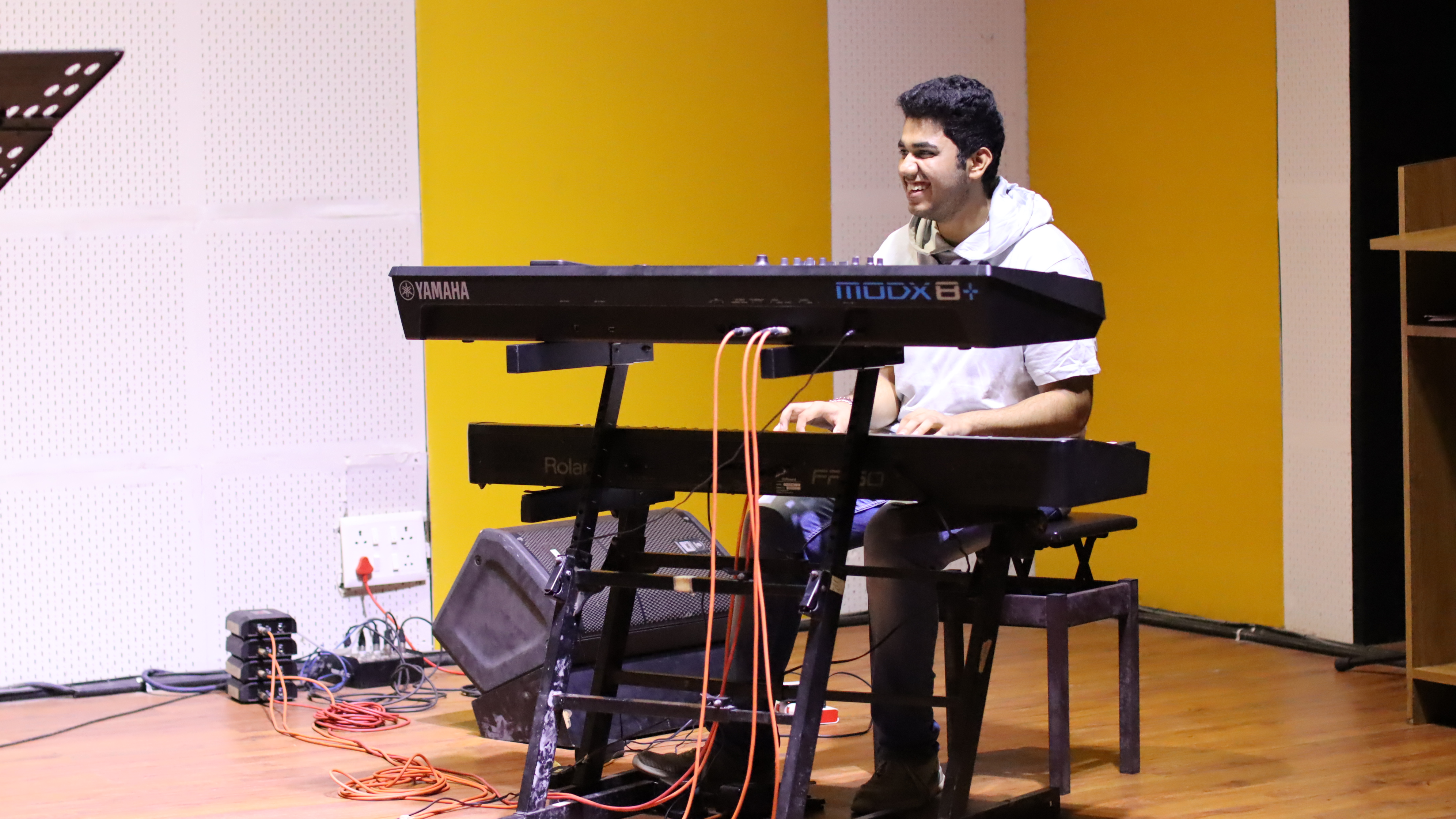
Life at VU was transformed into a jubilant celebration of originality and artistic expression, with Chromance at the forefront. The university community immersed themselves in the festive atmosphere, and the ensemble's performance left an indelible mark on students, faculty, and music enthusiasts alike.
|
|
|
| |
|
|
|
| |
Student Quotes |
|
|
| |
|
|
|
| |
|
“The best part was when we jammed together and made the craziest riffs we could ever think of! We never thought that we could compose two entire songs just by using scales, arpeggios and a little bit of CHROMANCE!”
Neil Singh, B.Mus Dual Major, Vijaybhoomi University
|
|
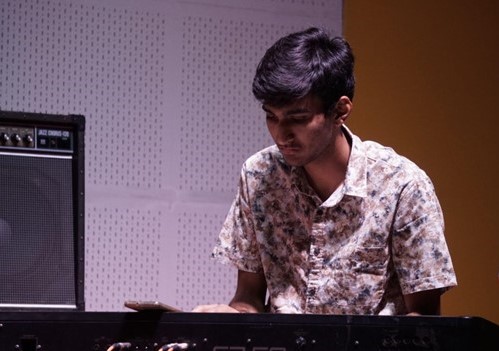
|
|
|
|
| |
|
|
|
| |
Readers Ask, Vijaybhoomi Answers |
|
|
| |
|
|
|
| |
What are some of the cultural events celebrated in Vijaybhoomi University?
|
|
|
| |
Vijaybhoomi, as a community, upholds the values of secularism and embraces the importance of respecting all cultures. We strive to foster inclusivity by organising a wide range of cultural events, including Christmas, Diwali, Onam, Eid, Halloween, and many others. These celebrations allow us to honour and appreciate the diverse traditions and customs that contribute to the vibrant tapestry of our community.
|
|
|
| |
 |
|
|
| |
Generated by:
Satvika Kushwaha
We really value your feedback. We’d love to hear back from you. Do write to us at newsletter@vijaybhoomi.edu.in
|
|
|
| |
 |
|
|
| |
About Vijaybhoomi |
|
|
| |
Vijaybhoomi University is India's first Liberal Professional University, which uses the liberal-professional framework of education to build a unique curriculum aligned to Industry 4.0. The curriculum facilitates the process of self-discovery in the initial year and thereafter choice of majors and minors to prepare oneself in high-demand careers in data science, artificial intelligence, business, law, music and design. The university is located in Karjat, Greater Mumbai, and nurtures holistic, socially responsible, and continuously employable professionals who can make a positive difference in the world.
Vision
To become an independent, multi-disciplinary, globally acclaimed university which facilitates learner-centricity, builds pathways to groom holistic individuals, and foste
rs innovation and scholarship to impact practice and communities
Mission
Nurture holistic, socially responsible, and continuously employable professionals.
|
|
|
| |
|
|
|
| |
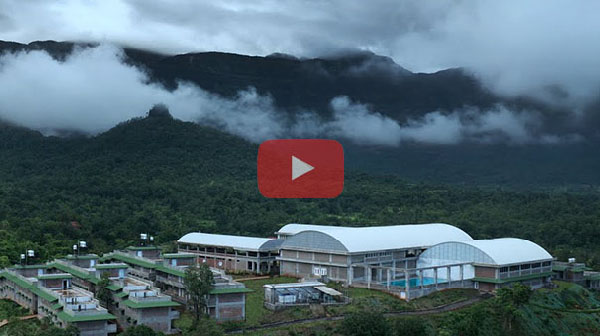 |
|
|
|
|

|
|
|